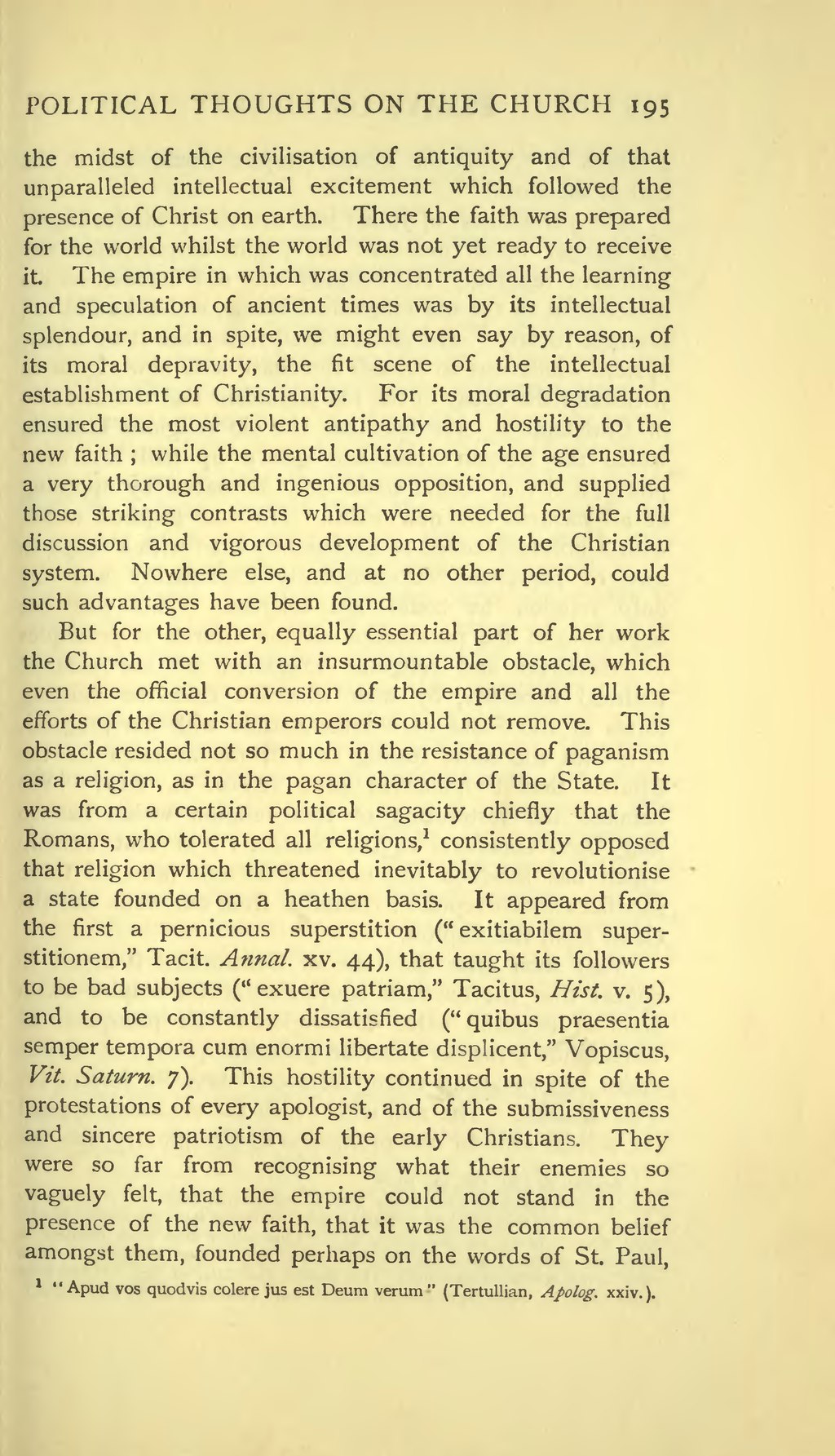POLITICAL THOUGHTS ON THE CHURCH 195
the midst of the civilisation of antiquity and of that unparalleled intellectual excitement which followed the presence of Christ on earth. There the faith was prepared for the world whilst the world was not yet ready to receive it. The empire in \vhich was concentrated all the learning and speculation of ancient times was by its intellectual splendour, and in spite, \ve might even say by reason, of its moral depravity, the fit scene of the intellectual establishment of Christianity. For its moral degradation ensured the most violent antipathy and hostility to the new faith; while the mental cultivation of the age ensured a very thorough and ingenious opposition, and supplied those striking contrasts which were needed for the full discussion and vigorous development of the Christian system. N o\vhere else, and at no other period, could such advantages have been found. But for the other, equal1y essential part of her work the Church met with an insurmountable obstacle, which even the official conversion of the empire and all the efforts of the Christian emperors could not remove. This obstacle resided not so much in the resistance of paganism as a religion, as in the pagan character of the State. It was from a certain political sagacity chiefly that the Romans, who tolerated all religions,! consistently opposed that religion which threatened inevitably to revolutionise a state founded on a heathen basis. It appeared from the first a pernicious superstition (" exitiabilem super- stitionem," Tacit. Annal. xv. 44), that taught its follo\vers to be bad subjects (" exuere patriam," Tacitus, Hzst. v. 5), and to be constantly dissatisfied (U quibus praesentia semper tempora cum enormi libertate displicent," V opiscus, Vito Saturn. 7). This hostility continued in spite of the protestations of every apologist, and of the submissiveness and sincere patriotism of the early Christians. They were so far from recognising what their enemies so vaguely felt, that the empire could not stand in the presence of the ne\v faith, that it was the common belief amongst them, founded perhaps on the words of St. Paul, 1 II Apud vos quodvis colere jus est Deum verum" (Tertullian, Apolog, xxiv,).
